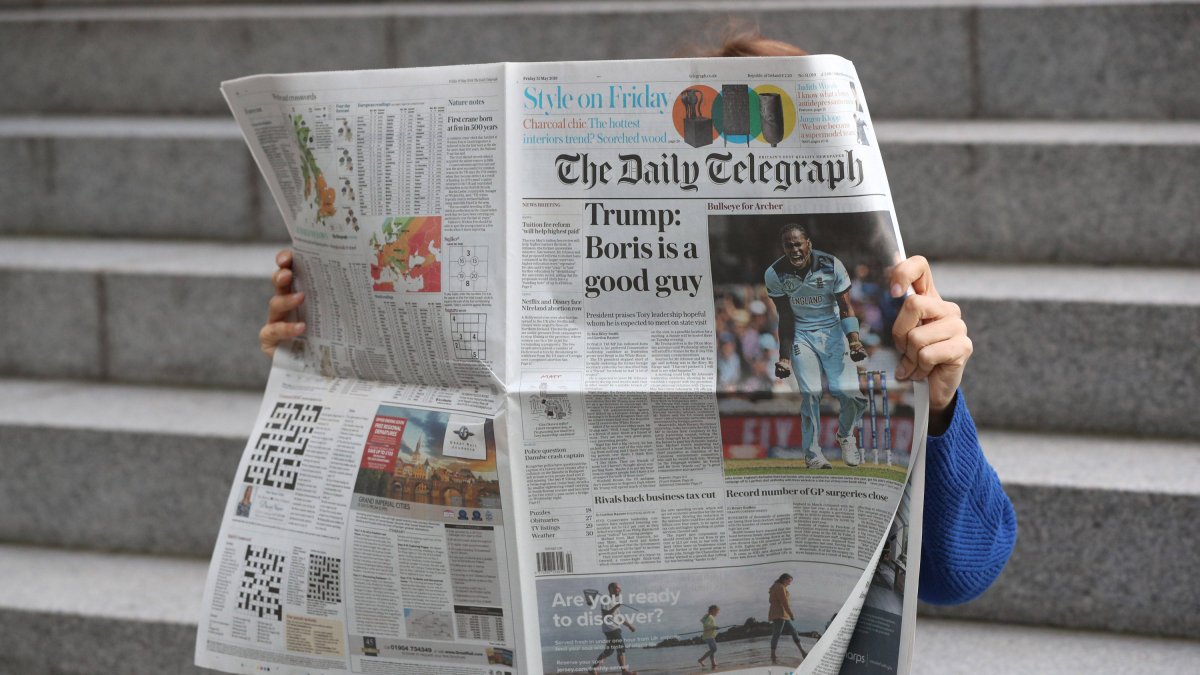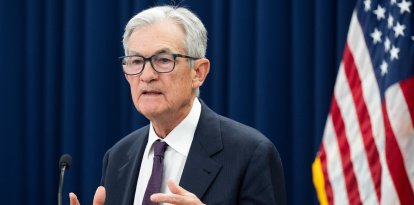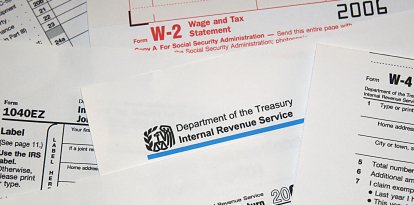The US fund RedBird reaches an "agreement in principle" to buy The Telegraph
The buyers pledge to "maintain the editorial values" of the medium and will focus on digital and international expansion, especially into the US.

A reader leafs through a copy of The Telegraph.
U.S. fund RedBird announced Friday it had reached a "preliminary agreement" to take over the influential British conservative daily The Telegraph, which has been seeking a buyer for nearly two years, for 500 million pounds ($670 million).
The deal opens a "new era of growth" for The Telegraph, "a medium with a 170-year history," RedBird Capital Partners said in a statement. The British newspaper group, owned since 2004 by the Barclay family, had been put up for sale at the end of 2023 by Lloyds Bank to pay off considerable debts.
RedBird's second attempt to acquire 'The Telegraph'
A joint venture between RedBird and Abu Dhabi media investment fund (IMI), called RedBird IMI, had struck a deal with the Barclay family.
But the prospect of an Emirati fund controlling one of the UK's most influential publications unsettled the UK government, which announced its intention to legislate to block the acquisition of newspapers by foreign states. Following this initiative by the British government, RedBird IMI eventually gave up on its purpose.
Now it is the U.S. fund, alone, which offers to become a "majority shareholder," although it specifies that it is in talks with "British minority investors," "specialists in print media and committed to defending the editorial values of The Telegraph."
More digital weight and international expansion into the U.S.
The fund, which has already invested in football clubs in Europe such as AC Milan and Liverpool, says it wants to focus on The Telegraph's digital operations, subscriptions and "the best journalistic talent," and expand the publication internationally, especially into the United States.
According to The Telegraph, the Emirati fund IMI, RedBird's initial partner, will retain a stake that could reach 15%, a threshold recently mentioned by the government as a possible limit for foreign state investments.

























